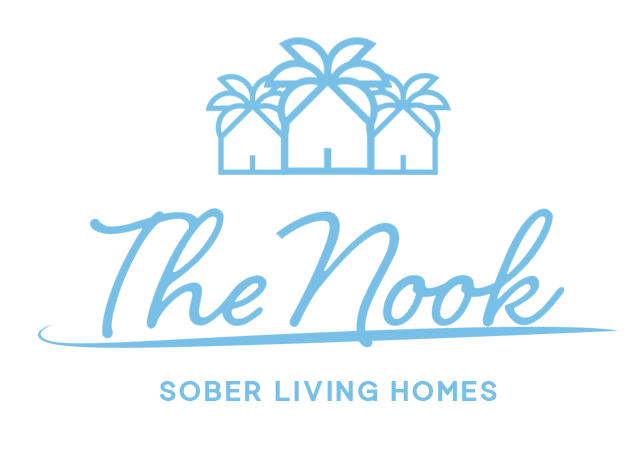Finding lasting sobriety requires more than just stopping the use of drugs or alcohol. For many people, the real challenge lies in learning how to manage emotions, handle stress, and build healthy relationships without relying on substances. At The Nook Sober Living, we believe recovery means equipping residents with practical tools that support long-term stability. One of the most powerful approaches we use to achieve this is Dialectical Behavior Therapy (DBT).
DBT was originally developed to help people struggling with borderline personality disorder, but it has since been proven effective for treating a wide range of issues including addiction, depression, anxiety, and trauma. At The Nook, residents live in a supportive sober living environment while attending therapy at Thrive Treatment, where DBT is an integral part of clinical care. This combination of structured sober housing and evidence-based therapy provides residents with the balance of accountability, skill-building, and community needed to sustain recovery.

Why DBT is So Effective in Addiction Treatment
Addiction is often rooted in emotional pain. Many people begin using substances to escape stress, trauma, or overwhelming feelings. Once drugs or alcohol are removed, the emotions that were being numbed often come rushing back. Without the right coping strategies, this can quickly lead to relapse. This is where DBT becomes essential.
DBT provides residents with a clear framework for handling life’s challenges without turning to substances. The therapy focuses on four core skill areas: distress tolerance, emotion regulation, mindfulness, and interpersonal effectiveness. Each of these areas targets the common struggles people face in recovery.
For example, distress tolerance skills give residents healthy alternatives to handle cravings, urges, or emotional lows. Instead of acting impulsively, they learn ways to ride out the wave of discomfort until it passes. Emotion regulation helps residents understand and manage feelings that may feel overwhelming, such as anger, sadness, or shame. Mindfulness keeps residents grounded in the present moment, so they can notice early warning signs of relapse before it escalates. Interpersonal effectiveness gives them the ability to set boundaries, repair relationships, and ask for help—all crucial for maintaining sobriety and building a healthy support system.
At The Nook, these skills are not just concepts residents hear in therapy sessions. They are applied in daily life, reinforced in the sober living environment, and supported by staff who encourage residents to practice DBT tools in real situations.
DBT and Mental Health Treatment
While DBT is often discussed in the context of addiction, it is equally valuable for mental health treatment. Many people who come to The Nook struggle not only with substance use but also with co-occurring mental health challenges such as depression, anxiety, PTSD, or personality disorders. These issues can complicate recovery and increase the risk of relapse if left untreated.
DBT helps stabilize mental health by giving residents a practical roadmap for managing emotions and building resilience. For someone with depression, DBT introduces mindfulness practices that reduce rumination and negative thinking. For someone with anxiety, DBT skills create structure and reduce racing thoughts that feel overwhelming. For trauma survivors, distress tolerance strategies provide ways to manage triggers without avoiding them or shutting down. For those dealing with personality disorders, DBT’s structured approach offers tangible steps to manage emotional intensity and improve relationships.
At Thrive Treatment, where all Nook residents attend therapy, DBT is used to address these mental health concerns in both group and individual sessions. Residents then return to The Nook, where they are able to practice what they learned in therapy within the safety of a sober living community. This back-and-forth integration between therapy and real-life application is what makes DBT at The Nook so impactful.
DBT in Action at The Nook Sober Living
The Nook is more than just a place to live. It is a structured sober living community designed to help residents grow in sobriety while developing the tools they need for long-term success. DBT skills are reinforced every day at The Nook.
Residents are encouraged to practice mindfulness when dealing with stress, to use distress tolerance techniques when faced with cravings, and to apply interpersonal effectiveness when navigating relationships with housemates or family members. Staff members provide guidance and coaching, ensuring that DBT becomes second nature rather than just something learned in a therapy room.
Group activities, nightly meetings, and sober outings also create opportunities for residents to strengthen their DBT skills. Whether it is learning how to handle conflict during a volleyball game, practicing emotion regulation during a stressful conversation, or using mindfulness to enjoy sober social activities, residents consistently apply what they are learning in therapy to real-life situations.
This consistency builds confidence. Residents begin to trust that they can handle life on life’s terms without substances. They realize they are not powerless over their emotions and that they have the tools to stay steady, even when challenges arise.
The Nook and Thrive: A Partnership for Lasting Recovery
One of the unique strengths of The Nook is its partnership with Thrive Treatment. While The Nook provides the safe, supportive environment of sober living, Thrive offers clinical therapy that addresses the deeper emotional and psychological aspects of recovery. This collaboration ensures residents are receiving comprehensive care that covers both the structure of daily sober living and the evidence-based therapy needed for mental health treatment.
Thrive’s DBT programs give residents the skills they need, while The Nook gives them the daily opportunities to put those skills into practice. Together, this creates a powerful foundation for long-term sobriety. Residents not only stay sober while living at The Nook but also gain the confidence to live independently, knowing they have a toolbox of DBT strategies to fall back on.
Building a Life Worth Living
The ultimate goal of DBT is to help people create what Dr. Linehan called “a life worth living.” At The Nook Sober Living, this philosophy is at the heart of everything we do. We want our residents not just to avoid relapse but to thrive in sobriety. By practicing DBT every day, residents learn how to manage stress, build healthy relationships, and enjoy life without the need for substances.
Recovery is not about perfection. It is about progress, growth, and building resilience. With the combination of DBT, the structured support of The Nook, and the clinical expertise of Thrive Treatment, residents have everything they need to move beyond survival and into a fulfilling, meaningful life in sobriety.
Conclusion
DBT is more than a therapeutic approach—it is a way of living that supports both sobriety and mental health. At The Nook Sober Living, residents benefit from a community that encourages daily practice of DBT skills while receiving professional therapy at Thrive Treatment. This integration gives them the structure, tools, and support they need to achieve lasting recovery.
Sobriety is not simply about avoiding substances. It is about creating a life filled with purpose, connection, and balance. Through the use of DBT, The Nook Sober Living helps residents build that foundation, one skill and one day at a time.


